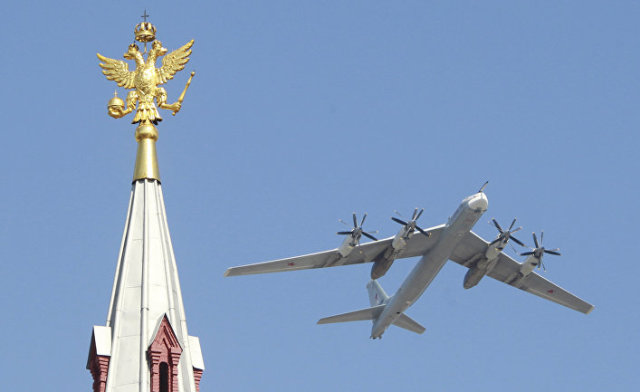The author of the article tries to make all the sensational juice out of the fact that British fighter jets flew to intercept Russian bombers in the Shetland Islands. For reference: these islands are located more than 150 kilometers from the unsociable northern coast of Britain, located to the southwest of the Shetland Islands. The other nearest country is Norway, which is located 300 kilometers to the northeast. British planes over the Baltic fly much closer to St. Petersburg, the second capital of Russia.
The departure of the fighters occurred at the moment when the planes from the Russian Federation approached the airspace of Britain. Putin is testing the patience of the United Kingdom.
British Air Force planes were alerted today when Russian bombers flew dangerously close to our airspace.
Elite Typhoon fighters took to the air from the Royal Air Force base in Lossiemouth (Scotland) at about eight o'clock in the morning to intercept Vladimir Putin's planes. They were also joined by the Royal Air Force's Voyager air tanker, which allows Typhoons to monitor Russian bombers for as long as they need to.
The FlightRadar website showed how the aircraft moved over the North Sea north of the Shetland Islands to fly over Russian aircraft and demonstrate the capabilities of the British military.
According to this website, the fighters and bombers returned to their bases at about 10 a.m.
The Russian provocation is the latest in a series of tests that this former communist state is subjecting the Royal Air Force to.
Earlier this month, a Russian plane flew near the Shetland Islands, prompting the British military to raise a Typhoon alert in the air with the support of a Voyager tanker.
The same incident occurred a few days earlier, when two pairs of British Typhoons were sent to intercept from the Lossiemouth base, located near the Moray district in north-east Scotland, while the third plane was lifted from the RAF base at Coningsby in Lincolnshire.
The types of Russian aircraft used today are still unknown, but Putin has previously sent Tu - 95 Russian Bears bombers to carry out such missions.
Tu-95s can carry nuclear bombs, and they often conduct exercises in the North Atlantic, which regularly provokes retaliatory actions from Britain and its NATO allies.
The reports come as the Russian president continues to test the United Kingdom's military capabilities both at home and abroad.
In addition to using conventional military equipment to test the capabilities of the United Kingdom, Russia is increasingly using cyber weapons.
Last week, Russia tried to block the vital navigation signals of Royal Air Force aircraft as they took off from their base in Cyprus. (So in the text. Two paragraphs below, you can read that the British have no evidence of Russia's participation in the electronic warfare against British aircraft, they simply proceed from the fact that there were only two military forces opposing Britain - the Syrian and Russian. The author excludes Turkish, Greek and Israeli participation in the incident without any grounds - ed. ).
Military intelligence sources reported that the" hostile state " makes regular attempts to jam the signals of the onboard satellite communication systems on the A400M transport aircraft when they take off with soldiers on board from the Akrotiri air base.
None of these electronic attacks worked, but if successful, there could be victims.
Defense experts believe that only two hostile states, given the distance, could try to drown out the signals - Russia and Syria.
And Russia is considered the only state capable of launching such an attack.
Here is what a source from the national security structures said in an interview with the Times newspaper: "Russia is trying to drown out our planes taking to the air, and all this is part of its activity carried out below the threshold level."
"The activity below the threshold level is to create a confrontation, but to avoid a conflict."
"This is an example of how another state shows hostility and recklessness, without having a clear reason for it."
"We are talking about transport planes that deliver spare parts, and they are not fighter jets."
The latest threat of cyberwarfare from Russia came after British defence chiefs vowed to take a "tougher stance" over the" deteriorating " global security environment.
Russia is mentioned as the" most serious threat " to Britain's national security in the Integrated Review, which outlines our plans to update the deterrence posture in the face of growing threats from hostile states and non-state actors.
Oliver Pritchard-Jones)

